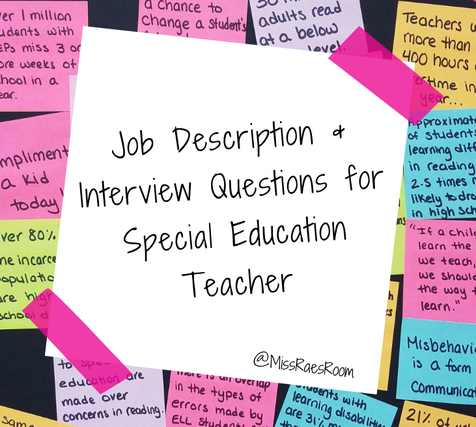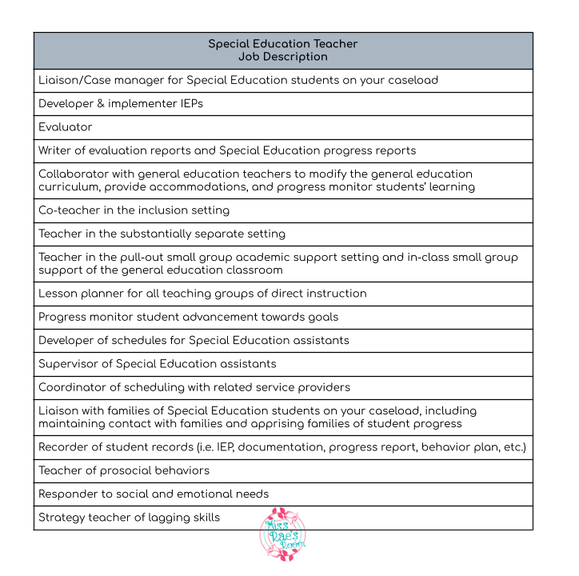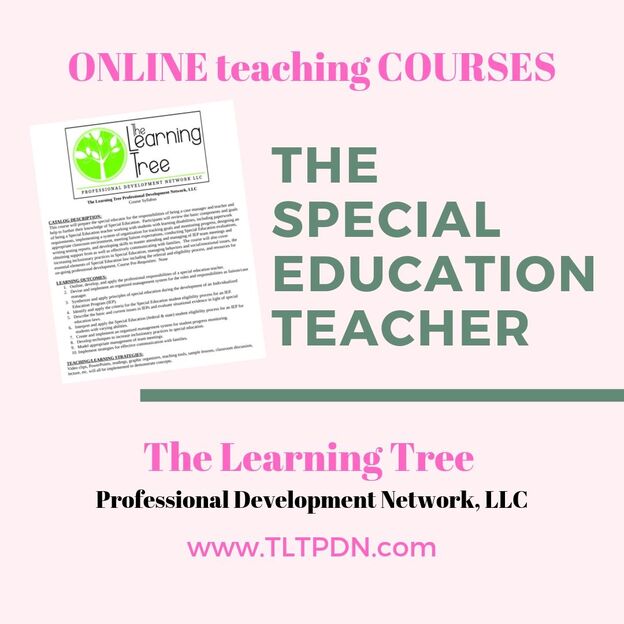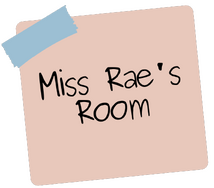|
It takes someone special to teach someone special!
Being a Special Education Teacher is a rewarding, and an albeit exhausting, job. However, the rewards far outweigh the exhaustion! As Special Education teachers, we work with the highest needs student population. These fragile students require loving and learning, and when you give this to them, they will return it threefold with the greatest rewards. Our Special Education students can make the greatest gains and be the proudest of them! We became Special Education Teachers to give our students the tools to manifest their ability over their disability. We challenge our students to achieve beyond their wildest dreams, and in turn, they will challenge us to do the same! The Special Education Teacher wears many hats. This is honestly why I love being a Special Education Teacher! You will NEVER be bored! However, despite all of the roles that you will play on a daily basis from hallway monitor to team member to recess duty teacher, there are a few roles that are actually in your job description.
Strive to be the standout Special Education Teacher, and you will naturally stand out, right?! Well, not really. There were 439,300 Special Education teaching positions in the United States in 2016, which translates to hundreds of teachers applying for open positions (Bureau of Labor Statistics, 2019). This means that you have to make yourself the standout!
Apply for open positions on Indeed, SchoolSpring, your local school districts’ sites, and your state’s Department of Education. Then, follow-up with a personalized email, selling yourself as the BEST Special Education Teacher that anyone has ever met. Visit schools in person to drop off your resume and shake hands with the principal. Do this in the interview, and then, be prepared to answer some interview questions! Common Special Education Teacher Interview Questions: Tell us more about yourself. What is your teaching philosophy? What is your teaching experience? Do you have any experience or certifications with specialized curriculum (i.e. Wilson Reading, Orton Gillingham, LiPS)? What is one of your biggest strengths? Weaknesses? What makes you the best fit for this position? Why do you want to work for this district/school? Why did you want to become a special education teacher? What is your experience with the IEP process? Writing an IEP? What is your experience with evaluating students as part of the Special Education process? What tests are you familiar with? How do you implement inclusive practices? What is your classroom management style? How do you foster positive behavior in your classroom? What has been your most difficult moment or day teaching so far? Describe your lesson planning process. How do you incorporate technology in your lessons? In the classroom? Describe one of your best lessons. Describe a lesson that you thought was going to be great, but failed. How did you handle it? What is your experience with co-teaching? What is your opinion of co-teaching? How do you engage students in their learning? How would you handle a student who refuses to complete work? Follow directions? Explain how you differentiate for your students. How do you modify lessons to allow your students to access grade level content? Meet state standards? How do you foster communication with parents? How do you foster positive relationships with parents? How would you handle a parent who disagrees with you at an IEP meeting? How would you handle a parent who calls or emails you upset about a situation? What will you bring to the Special Education team? How will you communicate with services (OT, PT, Speech, etc.)? How do you monitor students’ progress? How do you use data to drive instruction? For IEPs? How do you work with support staff (paraprofessionals)? How do you handle a disagreement with support staff (paraprofessionals)? How would you de-escalate a situation? How you would de-escalate a crisis situation? Do you have any experience with writing a Manifestation Determination or a Behavior Intervention Plan (BIP)? What is the last professional development book you read or are currently reading? What conference or course have you recently taken? Questions for a Special Education Teacher to Ask the Interviewer or Team: What is the philosophy of the district’s Special Education department? What is the philosophy on Special Education in the school? What is the school culture like, and how is it fostered? What technology does the school have? Does the district provide any type of mentor program? What professional development opportunities are available for teacher growth? How does administration support the teachers? What is the typical caseload of a Special Education Teacher? Who is responsible for scheduling and chairing the IEP meetings? Take your time in responding to these questions. Be positive in your answers and support each answer with a story that demonstrates this answer’s reality in your classroom! Practice interviewing with your friends, family, and fellow teachers. Reflect upon their feedback to hone your interview skills! And most importantly, believe in yourself! You are a great teacher who will change the lives of each of your students! By: Miss Rae
1 Comment
6/28/2022 12:26:12 am
The school district you work for may require you to be licensed or certified in order to become a special education teacher. You will need to meet certain requirements before you can apply for licensure. These include earning graduate-level coursework in psychology and curriculum development, as well as earning undergraduate-level coursework related to teaching English to speakers of other languages (ESOL). After you've completed these requirements, your state's department of education will issue you a license or certification that allows you to teach in public schools.
Reply
Leave a Reply. |
CategoriesAll 504 Academic Testing Academic Testing Reports Achievement Testing Reports Back To School B/d Reversals Coronavirus COVID-19 Discrepancy Model Distance Learning Distance Learning With LD ELL Emotional Disability Executive Functioning Extended School Year First Year Special Education Teacher Advice Fluid Reasoning FREEBIES Goal Tracking IEP IEP At A Glance IEP Goals IEP Meetings Learning Disability Oral Reading Fluency Positive Affirmations For Special Education Students Progress Monitoring Reading Remote Learning RTI Rubrics Running Records SEL For Learning Disabilities Social Emotional Learning Special Ed Teacher Interview Questions Special Ed Teacher Job Description Special Education Special Education Progress Reports Special Education Reading Special Education Reading Programs Special Education Students Special Education Teachers Special Education Teachers Positive Affirmations Special Education Teacher Tips Special Education Websites Specially Designed Reading Instruction Teaching Strategy Trauma Wilson Reading Wilson Reading IEP Goals Writer's Workshop |




 RSS Feed
RSS Feed